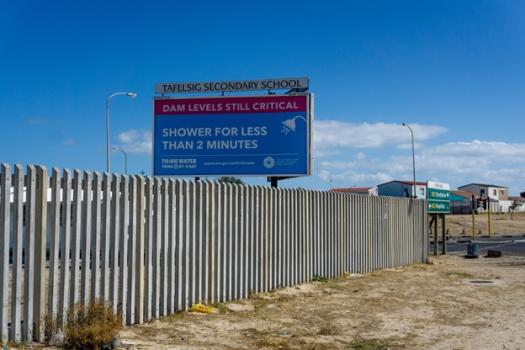How the City of Cape Town is Raising Own-Source Revenue and Improving Self-Reliance via Improved Customer Relationship Management
Why would a major city choose to reform customer relationship management (CRM) in the face of a water crisis? What good could that possibly do when reservoirs are drying up and citizens are being told to dramatically reduce water use? Many of us have had a frustrating experience with government customer service—long queues, no or slow response, and the feeling of helplessness. But when the water level of reservoirs for the South African city of Cape Town dropped due to an unprecedented multiyear drought that climaxed in 2018 and the city implemented its Day Zero emergency response, the need for CRM became apparent. Driven largely by what it learned from the 2018 water crisis, the City of Cape Town’s Department of Water and Sanitation is currently engaging in a CRM reform effort, as part of its new Water Strategy. The CRM reform has the potential to not only conserve water but to also bring in tens of millions of dollars in additional revenue to pay for the investment necessary to expand the city’s water supplies to avoid another future drought.
While Cape Town tends to answer customer calls quickly, problems are resolved at a much slower pace, averaging 10 days, but at times exceeding six months. The city now has plans to reduce the time for addressing queries and resolving most problems to 48 hours, and a maximum of 30 days. Improving call centers is but one part of CRM. For Cape Town, other issues presented themselves, such as dealing with inaccurate metering, billing errors, and significant collection backlogs.
Inefficiencies such as these impair financial and operational performance and are precisely where the critical, but often underappreciated, role of CRM can bring manifold improvements. But what exactly is CRM and how can it improve efficiency? CRM underpins the provision of reliable and affordable services to customers, and encompasses a number of business areas, including billing and collections, customer call and contact centers, metering, and IT, among others. With the challenge of water security and scarcity increasing, service providers are acknowledging that providing a quality service means communicating and managing the customer relationship to maximize value and the reliable stream of cash-flow from tariffs. In this way, CRM can directly contribute to operational efficiencies, responsiveness, and improved financial health.
In Cape Town, the CRM reform is anticipated to result in collections of water bills reaching 95 percent, up from 85 percent at present, which translates to roughly U.S. $30 million more in revenue per annum. An increase of cash flows to this extent can have significant impact through re-investment in the system to improve quality of service, extend to nonserved areas, and adapt to future droughts or other shocks.
USAID’s WASH-FIN (Finance) project is providing technical assistance to lead the CRM turnaround program in Cape Town. CRM areas requiring improvement included customer-facing and internal operations. Primary objectives in the CRM action plan are to:
- Improve the responsiveness and effectiveness of the customer care and call center
- Increase billing efficiency rates and accuracy
- Increase collections and manage delinquent customers
- Improve meter reading, meter accuracy, and meter replacement
- Streamline CRM organizational structure
Customer service improvements such as replacing faulty meters and improving collections are also crucial elements in reducing commercial losses from non-revenue water loss.
Maintaining goodwill with customers through CRM contributes to enhanced value to the customer. Further, a lack of knowledge surrounding the cost of service delivery and usage can impact willingness to pay, and efforts to lower consumption and conserve water.
The need for CRM is universal among water service providers be it a standalone public utility, or a municipal or private operator. While each case is unique, as the City of Cape Town demonstrates, improving CRM can bring an outsized payback not only in times of crises, but also in normal operating scenarios. Moreover, as this case shows, by enhancing the customer relationship and capturing lost revenue, CRM has the potential to help a local water service provider improve its financial position, which is foundational for self-reliance.
—WASH-FIN Southern Africa Activity


